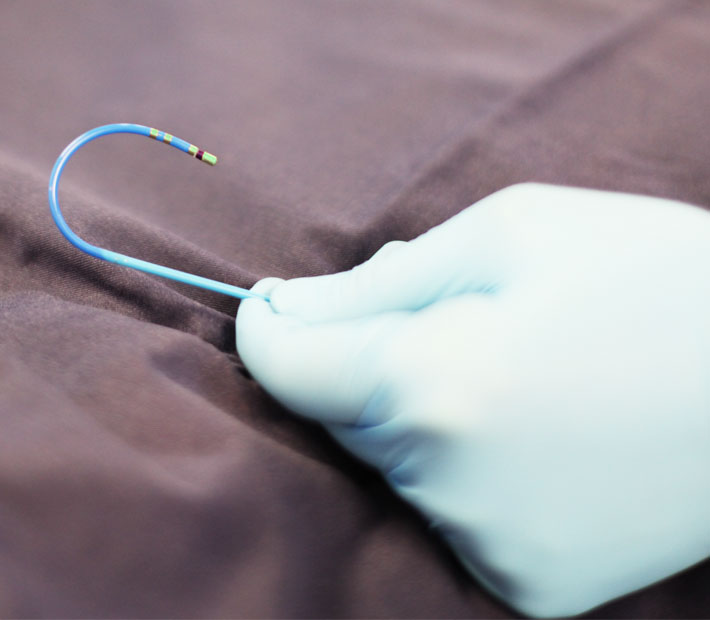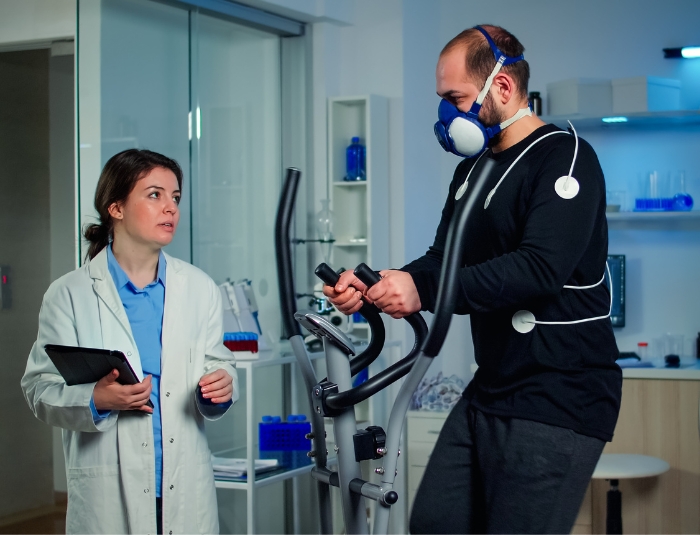IMPLANTABLE CARDIOVERTER-DEFIBRILLATOR (ICD) INSERTION

An implantable cardioverter defibrillator (ICD) is a sophisticated device that is inserted by cardiologists in patients with life-threatening heart rhythm disorders (usually ventricular tachycardia or ventricular fibrillation) to lower the risk of sudden death. Several large studies have conclusively shown that some patients with severe heart failure who have not yet experienced a life-threatening ventricular arrhythmia may also benefit from insertion of an implantable cardioverter defibrillator (ICD) to lower the chance of dying suddenly. The device continually monitors the patient’s heart rhythm and, if it detects a dangerous one, can either deliver a small series of electrical impulses (called anti-tachycardia pacing) or an internal electrical shock to restore normal rhythm. ICDs are inserted in a similar way to pacemakers and can also provide back-up pacing to the heart if the heart rate is too slow.



